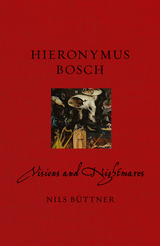21 start with I start with I

The Idea of a Writing Laboratory is a book about possibilities, about teaching and learning to write in ways that can transform both teachers and students.
Author Neal Lerner explores higher education’s rich history of writing instruction in classrooms, writing centers and science laboratories. By tracing the roots of writing and science educators’ recognition that the method of the lab––hands-on student activity—is essential to learning, Lerner offers the hope that the idea of a writing laboratory will be fully realized more than a century after both fields began the experiment.
Beginning in the late nineteenth century, writing instructors and science teachers recognized that mass instruction was inadequate for a burgeoning, “non-traditional” student population, and that experimental or laboratory methods could prove to be more effective. Lerner traces the history of writing instruction via laboratory methods and examines its successes and failures through case studies of individual programs and larger reform initatives. Contrasting the University of Minnesota General College Writing Laboratory with the Dartmouth College Writing Clinic, for example, Lerner offers a cautionary tale of the fine line between experimenting with teaching students to write and “curing” the students of the disease of bad writing.
The history of writing within science education also wends its way through Lerner’s engaging work, presenting the pedagogical origins of laboratory methods to offer educators in science in addition to those in writing studies possibilities for long-sought after reform. The Idea of a Writing Laboratory compels readers and writers to “don those white coats and safety glasses and discover what works” and asserts that “teaching writing as an experiment in what is possible, as a way of offering meaning-making opportunities for students no matter the subject matter, is an endeavor worth the struggle.”
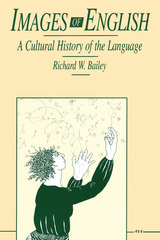
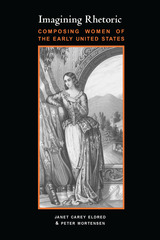
Imagining Rhetoric examines how women’s writing developed in the decades between the American Revolution and the Civil War, and how women imagined using their education to further the civic aims of an idealistic new nation.
In the late eighteenth century, proponents of female education in the United States appropriated the language of the Revolution to advance the cause of women’s literacy. Schooling for women—along with abolition, suffrage, and temperance—became one of the four primary arenas of nineteenth-century women’s activism. Following the Revolution, textbooks and fictions about schooling materialized that revealed ideal curricula for women covering subjects from botany and chemistry to rhetoric and composition. A few short decades later, such curricula and hopes for female civic rhetoric changed under the pressure of threatened disunion.
Using a variety of texts, including novels, textbooks, letters, diaries, and memoirs, Janet Carey Eldred and Peter Mortensen chart the shifting ideas about how women should learn and use writing, from the early days of the republic through the antebellum years. They also reveal how these models shaped women’s awareness of female civic rhetoric—both its possibilities and limitations.

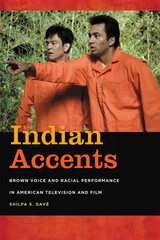

In Inessential Solidarity, Diane Davis examines critical intersections of rhetoric and sociality in order to revise some of rhetorical theory’s basic presumptions. Rather than focus on the arguments and symbolic exchanges through which social relations are defined, Davis exposes an underivable rhetorical imperative, an obligation to respond that is as undeniable as the obligation to age. Situating this response-ability as the condition for, rather than the effect of, symbolic interaction, Davis both dissolves contemporary concerns about linguistic overdetermination and calls into question long-held presumptions about rhetoric’s relationship with identification, figuration, hermeneutics, agency, and judgment.
Spotlighting a rhetorical “situation” irreducible to symbolic relations, Davis proposes quite provocatively that rhetoric—rather than ontology (Aristotle/Heidegger), epistemology (Descartes), or ethics (Levinas)—is “first philosophy.” The subject or “symbol-using animal” comes into being, Davis argues both with and against Emmanuel Levinas, only inasmuch as it responds to the other; the priority of the other is not a matter of the subject's choice, then, but of its inescapable predicament. Directing the reader’s attention to this inessential solidarity without which no meaning-making or determinate social relation would be possible, Davis aims to nudge rhetorical studies beyond the epistemological concerns that typically circumscribe theories of persuasion toward the examination of a more fundamental affectability, persuadability, responsivity.
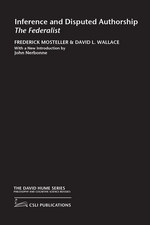
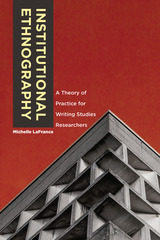
In this book, Michelle LaFrance introduces the theories, rhetorical frames, and methods that ground and animate institutional ethnography. Three case studies illustrate key aspects of the methodology in action, tracing the work of writing assignment design in a linked gateway course, the ways annual reviews coordinate the work of faculty and writing center administrators and staff, and how the key term “information literacy” socially organizes teaching in a first-year English program. Through these explorations of the practice of ethnography within sites of writing and writing instruction, LaFrance shows that IE is a methodology keenly attuned to the material relations and conditions of work in twenty-first-century writing studies contexts, ideal for both practiced and novice ethnographers who seek to understand the actualities of social organization and lived experience in the sites they study.
Institutional Ethnography expands the field’s repertoire of research methodologies and offers the grounding necessary for work with the IE framework. It will be invaluable to writing researchers and students and scholars of writing studies across the spectrum—composition and rhetoric, literacy studies, and education—as well as those working in fields such as sociology and cultural studies.
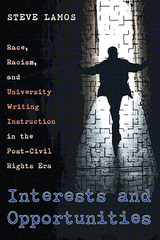
In the late 1960s, colleges and universities became deeply embroiled in issues of racial equality. To combat this, hundreds of new programs were introduced to address the needs of “high-risk” minority and low-income students. In the years since, university policies have flip-flopped between calls to address minority needs and arguments to maintain “Standard English.” Today, anti-affirmative action and anti-access sentiments have put many of these high-risk programs at risk.
In Interests and Opportunities, Steve Lamos chronicles debates over high-risk writing programs on the national level, and locally, at the University of Illinois at Urbana-Champaign. Using critical race theorist Derrick Bell’s concept of “interest convergence,” Lamos shows that these programs were promoted or derailed according to how and when they fit the interests of underrepresented minorities and mainstream whites (administrators and academics). He relates struggles over curriculum, pedagogy, and budget, and views their impact on policy changes and course offerings.
Lamos finds that during periods of convergence, disciplinary and institutional changes do occur, albeit to suit mainstream standards. In divergent times, changes are thwarted or undone, often using the same standards. To Lamos, understanding the past dynamics of convergence and divergence is key to formulating new strategies of local action and “story-changing” that can preserve and expand race-consciousness and high-risk writing instruction, even in adverse political climates.
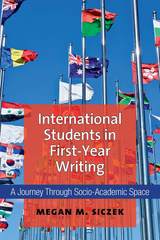
This study raises questions about how to support international students:
- In what ways can it inform our practices and policies relative to the internationalization of education and the development of global perspectives and competencies?
- What does it reveal that could impact daily instruction of L2 writing, particularly when it comes to international students’ need to meet the expectations of “university-level writing” in U.S. institutions of higher education?
- On an individual level, what can we learn from these students and about ourselves as a result of our interactions?
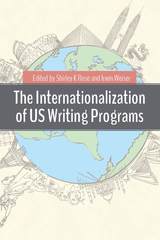
The Internationalization of US Writing Programs illuminates the role writing programs and WPAs play in defining goals, curriculum, placement, assessment, faculty development, and instruction for international student populations. The volume offers multiple theoretical approaches to the work of writing programs and illustrates a wide range of well-planned writing program–based empirical research projects.
As of 2016, over 425,000 international students were enrolled as undergraduates in US colleges and universities, part of a decade-long trend of increasing numbers of international students coming to the United States for both undergraduate and graduate degrees. Writing program administrators and writing teachers across the country are beginning to recognize this changing demographic as a useful catalyst for change in writing programs, which are tasked with preparing all students, regardless of initial level of English proficiency, for academic and professional writing.
The Internationalization of US Writing Programs is the first collection to focus specifically on this crucial aspect of the roles and responsibilities of WPAs, who are leading efforts to provide all students on their campuses, regardless of nationality or first language, with competencies in writing that will serve them in the academy and beyond.
Contributors: Jonathan Benda, Michael Dedek, Christiane Donahue, Chris W. Gallagher, Kristi Girdharry, Tarez Samra Graban, Jennifer E. Haan, Paula Harrington, Yu-Kyung Kang, Neal Lerner, David S. Martins, Paul Kei Matsuda, Heidi A. McKee, Libby Miles, Susan Miller-Cochran, Matt Noonan, Katherine Daily O’Meara, Carolina Pelaez-Morales, Stacey Sheriff, Gail Shuck, Christine M. Tardy, Stanley Van Horn, Daniel Wilber, Margaret Willard-Traub
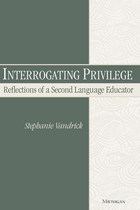
Interrogating Privilege is a welcome combination of personal essays and academic research, blending theory, analysis, and narrative to explore the function and consequences of privilege in second language education.
While teachers’ focus on the learning process and class goals are quite important, there is not enough attention paid to the types of privilege—or lack thereof—that individuals bring to the classroom. Through chapters that can either stand alone or be read together, with topics such as gender, age, and colonialism (the author is the daughter of missionary parents) in second language teaching, this book seeks to address the experiences of teachers, scholars, and students as “whole persons” and to observe the workings of identity and privilege in the educational setting.
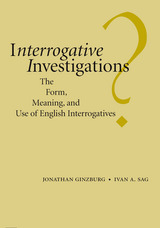
This book closes the gap in research on this subject. By developing the frameworks of Head Driven Phrase Structure Grammar and Situation Semantics, the authors provide an account that rigorously integrates syntactic, semantic, and contextual dimensions of interrogatives. The challenge of providing exhaustive coverage of the interrogative constructions of English, including various constructions that occur solely in dialogue interaction, leads to new insights about a variety of contentious theoretical issues. These include matters of semantic ontology, the quantificational status of wh-phrases, the semantic effect of wh-fronting, the status of constructions in grammatical theory, the integration of illocutionary information in the grammar, and the nature of ellipsis resolution in dialogue. The account is stated with sufficient rigor to enable fairly direct computational implementation.

Introduccion a la Traductologia integrates the theoretical and practical aspects of translation.
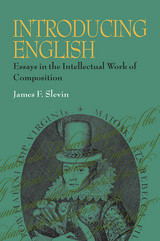
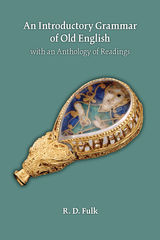
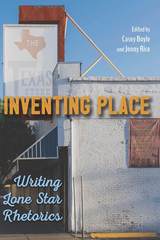
Divided into five sections corresponding to Texas regions, essays consider aesthetics, buildings, environment, food and alcohol, private and public memory, and race and class. Among the topics covered by contributors are the Imagine Austin urban planning initiative; the terroir of Texas barbecue; the racist past of Grand Saline, Texas; Denton, Texas, and authenticity as rhetorical; negative views of Texas and how the state (or any place) is subject to reinvention; social, historical, and economic networks of place and their relationship to the food we eat; and Texas gun culture and working-class character.
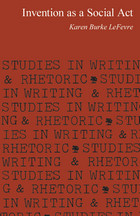
The act of inventing relates to the process of inquiry, to creativity, to poetic and aesthetic invention.
Building on the work of rhetoricians, philosophers, linguists, and theorists in other disciplines, Karen Burke LeFevre challenges a widely-held view of rhetorical invention as the act of an atomistic individual. She proposes that invention be viewed as a social act, in which individuals interact dialectically with society and culture in distinctive ways.
Even when the primary agent of invention is an individual, invention is pervasively affected by relationships of that individual to others through language and other socially shared symbol systems. LeFevre draws implications of a view of invention as a social act for writers, researchers, and teachers of writing.
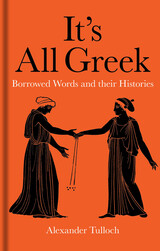
This book offers a word-by-word look at the influence of Greek on everyday words in English, telling the stories behind the etymological developments of each example and tracing their routes into modern English via Latin and European languages. It also explains connections with ancient Greek culture, in particular mythology, politics, and warfare, and includes proverbs and quotations from Greek literature. Revealing how deeply indebted we are to the language spoken in Athens 2,500 years ago, this book is the perfect gift for any logophile.
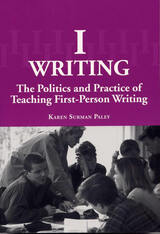
In this ethnographic study of the teaching of writing, Karen Surman Paley reveals the social significance of first-person writing and the limitations of a popular taxonomy of composition studies. Paley looks critically at the way social constructionists have created an “Other” in the field of composition studies and named it “expressivist.”
Paley demonstrates the complexity of approaches to teaching writing through an ethnographic study of two composition faculty at Boston College, a programthat some would say is “expressivist.” She prompts her colleagues to consider how family experiences shape the way students feel about and treat people of races, religions, genders, and sexual preferences other than their own. Finally, she suggests to the field of composition that practitioners spend less time shoring up taxonomies of the field and more time sharing pedagogies.
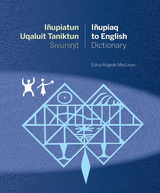
READERS
Browse our collection.
PUBLISHERS
See BiblioVault's publisher services.
STUDENT SERVICES
Files for college accessibility offices.
UChicago Accessibility Resources
home | accessibility | search | about | contact us
BiblioVault ® 2001 - 2024
The University of Chicago Press




